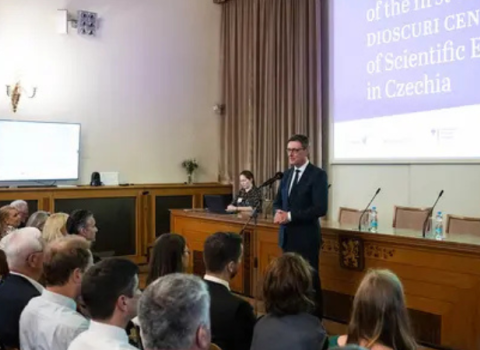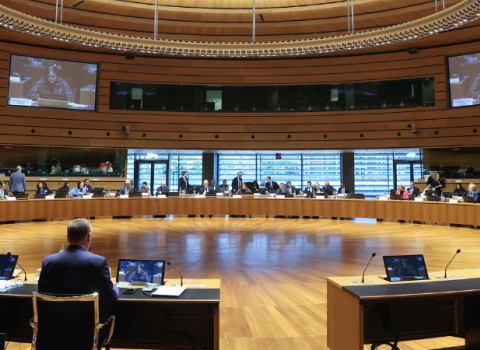EU research chief expects states to boost budgets and come up with ‘significant reforms’ in research and innovation

Ekaterina Zaharieva, European Commissioner for Startups, Research and Innovation. Photo credits: Bogdan Hoyaux / European Union
The European Commission is planning a review of its Widening programme for boosting research and innovation capabilities in poorer EU member states, EU Commissioner Ekaterina Zaharieva told Science|Business in an interview.
In the main part of the interview, published last week, Zaharieva addressed demands to increase the budget for FP10 to €220 billion, as well as her plans to simplify EU research funding.
However, Zaharieva also touched upon the growing research and innovation gap between richer and poorer EU states. Countries that joined the bloc after 2004 are still struggling to raise national R&D expenditures, attract foreign talent, improve framework conditions for researchers and boost their performance in Horizon Europe.
“Part of the widening programme is working,” Zaharieva said. “Now we’re making assessments of the different initiatives there, what works well, what doesn’t.”
Since it was set up in Horizon 2020 in a bid to close the east-west divide in research, the Widening programme has helped many researchers, institutions and countries lift their performance in EU research competitions. But the programme has been criticised for being too complex, while experts and stakeholders have called for it to be reformed.
“In general, this is a good programme. which was very difficult to negotiate, [and] it has to be preserved,” Zaharieva said. However, she is planning to visit all member states, including the so-called Widening countries addressed by the programme, to get a sense of what works and what doesn’t in its current structure.
Zaharieva also noted that the European Commission will not be able to plug the east-west innovation gap by simply boosting the Widening programme. In many Widening countries, public expenditure on R&D is much lower than the EU average, with some countries reporting less than 0.2% of GDP. The EU average is 2.2% of GDP, which also falls short of a 3% target set more than two decades ago.
“Member states will have to do more in terms of reforms and national budget allocations for research and innovation,” said Zaharieva. “Some of the member states need really significant reforms to be able to improve their innovation capacity.”
Zaharieva also hinted that the issue of salaries will return to the Commission’s political agenda during negotiations for FP10. In some of the Widening countries, researchers funded through EU schemes can receive up to 40% less money than in richer EU member states.
The Parliament view
Meanwhile, MEPs on the European Parliament’s industry and research committee have recommended that Widening countries start implementing national reforms in research and innovation. If they do not, the performance gap between east and west “cannot be closed regardless of efforts made at the EU level.”
Responding to a draft report presented by German conservative MEP Christian Ehler ahead of negotiations on FP10, the MEPs said that the east-west innovation gap is bad for the competitiveness of the EU, and with talent left untapped, economic disparities could grow. The Commission should ensure that upcoming legislation on the European Research Area imposes research and innovation reforms so member states can “eliminate subpar performance.”
Speaking at an event in Brussels last week, Hungarian MEP and committee member Eszter Lakos said she cannot imagine FP10 without a Widening component. “Politically it’s not feasible, neither in the Parliament nor in the Council,” she said.
Lakos said she is setting up a working group in the Parliament to discuss the future of the Widening programme and better prepare for FP10 negotiations.





 A unique international forum for public research organisations and companies to connect their external engagement with strategic interests around their R&D system.
A unique international forum for public research organisations and companies to connect their external engagement with strategic interests around their R&D system.